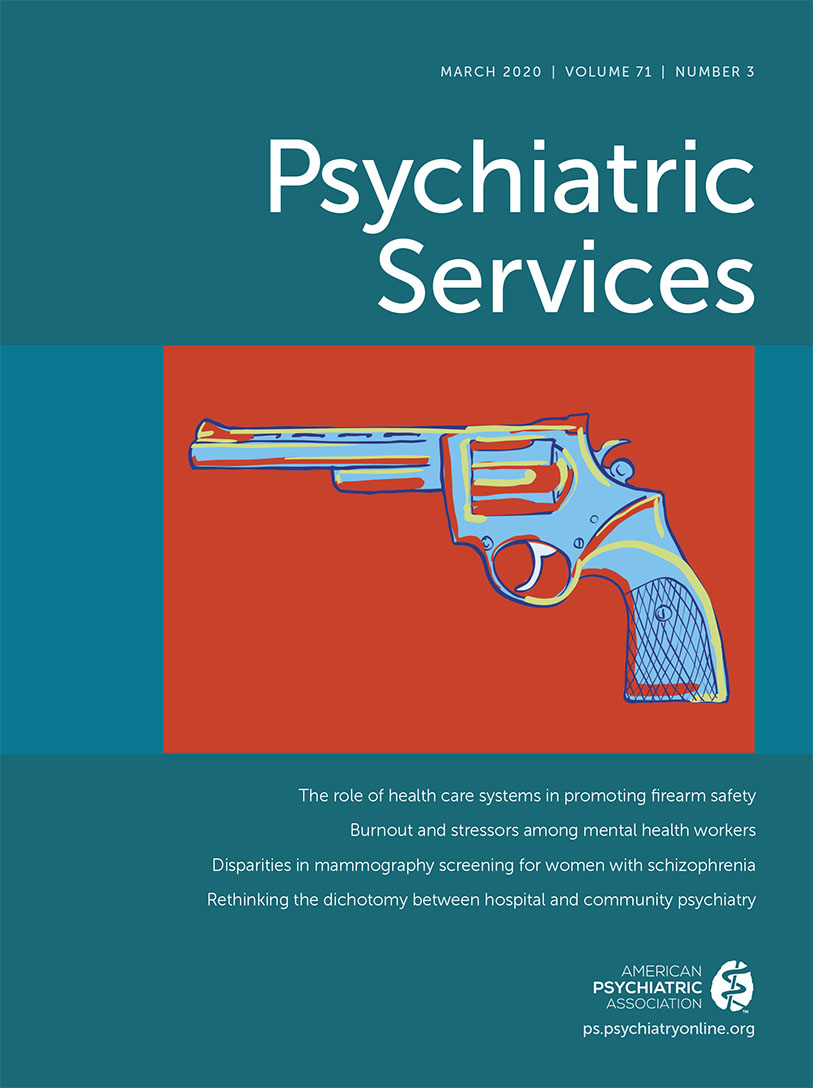Contribution of Critical Events and Chronic Stressors to PTSD Symptoms Among Psychiatric Workers
Abstract
Objective:
Psychiatric staff are exposed to critical events (e.g., violence, physical threats) in the workplace and thus are at risk of posttraumatic stress disorder (PTSD). The authors examined the prevalence of PTSD symptoms among psychiatric hospital staff in Canada and the role of potentially traumatic critical events and chronic stressors (e.g., witnessing patients engaging in self-injury) in affecting psychiatric staff’s mental health.
Methods:
The authors analyzed cross-sectional survey data from 761 psychiatric staff (69% female, 57% nursing, 64% with more than 5 years of experience in mental health). The analysis focused on questions about exposure to critical events and chronic stressors.
Results:
Sixteen percent of participants met a screening cutoff score on the PTSD Checklist-5, a self-report PTSD measure. Almost all staff (96%) had been directly or indirectly exposed to at least one critical event, and two-thirds (67%) had been directly exposed to at least one such event. Nursing staff reported higher scores than did allied health staff. A regression analysis yielded a model in which both critical events and chronic stressors were significant contributors to the variance in PTSD symptoms; professional discipline and gender did not explain additional variance.
Conclusions:
PTSD is a significant concern for psychiatric staff. Exposure to violence and chronic stressors were found to contribute significantly and independently to explaining PTSD symptom checklist scores.



